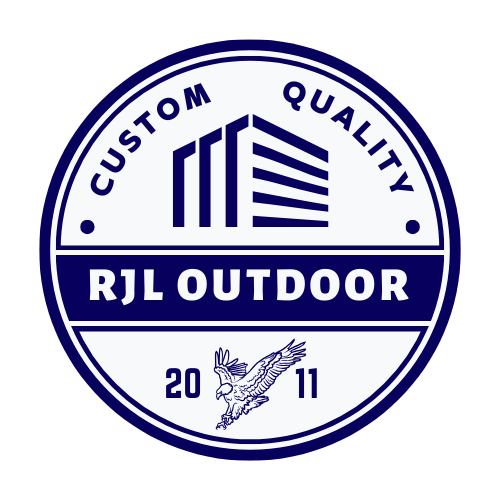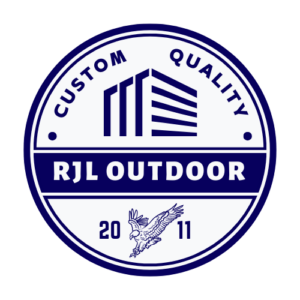Howdy!
You’ve poured your heart and soul into your Dallas-Fort Worth home, and now it’s time for the finishing touch that reflects your unique style and enhances your property’s curb appeal: a stunning custom wrought iron gate. But before you dive into the world of elegant scrolls and sturdy pickets, there’s an often-overlooked factor that can make or break your dream gate: DFW zoning regulations.
Navigating the ins and outs of local zoning ordinances might seem daunting, but fear not! We’re here to guide you through the process, ensuring your custom wrought iron gate not only complements your home’s aesthetic but also adheres to all the necessary regulations.
DFW Zoning: A Quick Overview
The Dallas-Fort Worth metroplex is a sprawling tapestry of diverse cities and neighborhoods, each with its own set of zoning regulations designed to maintain harmony and aesthetic appeal. These regulations cover a wide range of aspects, including:
-
Permitted Land Use: Zoning dictates how land can be used, whether for residential, commercial, or industrial purposes. This ensures that your neighborhood maintains its intended character.
-
Building Height and Setbacks: Regulations on building height and distance from property lines (setbacks) ensure adequate light, air circulation, and privacy for all residents.
-
Fence and Gate Regulations: Here’s where things get interesting for your custom wrought iron gate. DFW zoning ordinances often include specific rules regarding fence and gate height, materials, design, and placement.
Unveiling the Impact of Zoning on Your Custom Wrought Iron Gate
Now, let’s delve into how DFW zoning regulations directly influence your dream gate:
Height Restrictions: Finding the Perfect Balance
Imagine this: you’ve envisioned a grand, imposing wrought iron gate that stands tall and proud, a true statement piece for your property. However, before you get carried away with visions of towering elegance, it’s crucial to consult your local zoning ordinances.
DFW cities often impose height restrictions on fences and gates, particularly in residential areas. These restrictions aim to:
-
Preserve Views and Sunlight: Excessively tall fences and gates can obstruct views and cast long shadows, impacting the enjoyment of neighboring properties.
-
Maintain Openness and Safety: Height restrictions contribute to a sense of openness within the neighborhood and can improve visibility for drivers and pedestrians, enhancing safety.
Typically, front yard fences and gates are subject to more stringent height limitations than those in the backyard. You’ll often encounter maximum height limits ranging from 3 to 6 feet for front yards, while backyards might allow for taller structures.
Pro Tip: Before finalizing your gate design, contact your local zoning department or homeowners’ association (HOA) to obtain precise height restrictions for your property.
Material Matters: Ensuring Harmony with Your Surroundings
While wrought iron is renowned for its durability, elegance, and timeless appeal, some DFW communities have specific regulations regarding fence and gate materials. These regulations aim to:
-
Preserve Architectural Integrity: Some historic neighborhoods or communities with strict aesthetic guidelines may require materials that complement the prevailing architectural style.
-
Minimize Maintenance Concerns: Certain materials might be discouraged if they are prone to rust, rot, or other forms of deterioration that could impact neighborhood aesthetics.
In most cases, wrought iron gates are welcomed additions to DFW neighborhoods due to their classic design and ability to blend seamlessly with various architectural styles. However, it’s always wise to double-check with your local zoning department or HOA to confirm material compliance.
Design Elements: Balancing Style with Safety
The intricate scrolls, elegant arches, and pointed pickets of a custom wrought iron gate are what make it such a captivating statement piece. However, even these decorative elements can be subject to zoning regulations, primarily for safety reasons:
-
Spear Point Restrictions: Some DFW cities have regulations limiting the sharpness or height of spear points on fences and gates to prevent potential injuries.
-
Visibility and Transparency: Zoning ordinances might require a certain level of visibility through or over the gate, especially for corner lots, to ensure unobstructed views for drivers and pedestrians.
When designing your custom wrought iron gate, consider incorporating these safety elements seamlessly into the overall aesthetic. For instance, you could opt for rounded spear points or incorporate decorative elements that provide partial visibility without compromising security.
Placement Precision: Respecting Property Lines and Easements
Determining the precise location of your custom wrought iron gate involves more than just aesthetics; it also requires careful consideration of property lines and easements.
-
Property Lines: Encroaching on a neighbor’s property with your gate can lead to disputes and legal complications. Always have your property lines professionally surveyed before installation.
-
Easements: Easements are legal rights granting others access to a portion of your property for specific purposes, such as utilities or shared driveways. Your gate placement must not obstruct these easements.
By respecting property lines and easements, you ensure a smooth installation process and avoid potential conflicts down the road.
Navigating the DFW Zoning Maze: Your Path to Gate-Way Success
Now that you understand the key zoning aspects that can influence your custom wrought iron gate, let’s outline the steps to ensure a smooth and compliant installation:
Step 1: Uncover Your Local Zoning Ordinance
Your journey begins with gathering the necessary information specific to your property. You can find your local zoning ordinance:
-
Online: Many DFW cities have their zoning ordinances available online, often through the city’s planning or development services department website.
-
In Person: Visit your local city hall or planning department to obtain a copy of the zoning ordinance or speak with a staff member.
Step 2: Decipher the Regulations
Once you have your local zoning ordinance in hand, focus on the sections related to fences, gates, and accessory structures. Pay close attention to:
-
Height Restrictions: Note the maximum allowed height for fences and gates in your zoning district, both for the front and back yards.
-
Material Requirements: Check for any restrictions or guidelines regarding acceptable fence and gate materials.
-
Design Standards: Review any regulations related to spear points, visibility, or other design elements.
-
Placement Guidelines: Familiarize yourself with rules regarding property lines, setbacks, and easements.
Step 3: Consult with Your HOA
If your property is part of a homeowners’ association, they might have additional covenants, conditions, and restrictions (CC&Rs) that apply to fences and gates. Contact your HOA to obtain a copy of these guidelines and ensure your gate design aligns with their requirements.
Step 4: Collaborate with a Reputable Contractor
Partnering with a reputable and experienced wrought iron gate contractor in the DFW area is crucial. Look for a contractor who:
-
Possesses Local Expertise: They should be well-versed in DFW zoning ordinances and HOA guidelines.
-
Prioritizes Compliance: They should prioritize obtaining any necessary permits and ensuring your gate adheres to all regulations.
-
Values Communication: They should communicate clearly throughout the process, addressing any questions or concerns you may have.
Step 5: Secure the Necessary Permits
In many DFW cities, installing a new fence or gate requires obtaining a building permit. Your contractor can guide you through the permit application process, which might involve:
-
Submitting Plans: You’ll likely need to provide detailed drawings of your gate design, including dimensions, materials, and placement.
-
Paying Fees: Permit fees vary depending on the scope of the project.
-
Scheduling Inspections: Once the gate is installed, a city inspector will typically need to verify compliance with all regulations.
Beyond Compliance: Elevating Your Curb Appeal
While adhering to DFW zoning regulations is essential, remember that your custom wrought iron gate is also an opportunity to enhance your home’s curb appeal and reflect your unique style. Here are some inspiring ideas:
Embrace Architectural Harmony
Your gate should complement the architectural style of your home, creating a cohesive and visually pleasing aesthetic.
-
Traditional Homes: Classic wrought iron gates with elegant scrolls, arches, and finials enhance the timeless charm of traditional homes.
-
Modern Homes: Sleek, minimalist wrought iron gates with clean lines and geometric patterns complement the contemporary feel of modern architecture.
-
Mediterranean Homes: Intricate wrought iron gates with Moorish influences, such as quatrefoils and geometric designs, enhance the Mediterranean ambiance.
Incorporate Eye-Catching Details
Elevate your gate from ordinary to extraordinary with captivating details that reflect your personality:
-
Personalized Monograms: Add a touch of sophistication and personalize your gate with a custom wrought iron monogram featuring your family name or initials.
-
Nature-Inspired Motifs: Incorporate nature-inspired motifs, such as leaves, vines, or flowers, into the wrought ironwork for a touch of organic elegance.
-
Statement Finials: Crown your gate with eye-catching finials, such as spheres, scrolls, or pineapple designs, to add a touch of grandeur.
Enhance Security and Privacy
Beyond aesthetics, your custom wrought iron gate can enhance your property’s security and privacy:
-
Security Gates: Opt for a sturdy wrought iron gate with features like pointed pickets, anti-climb designs, and automated gate operators for enhanced security.
-
Privacy Screens: Incorporate wrought iron panels with closer picket spacing or decorative inserts to create a sense of privacy without completely obstructing views.
DFW Zoning: Your Partner, Not Your Adversary
Navigating the world of DFW zoning regulations might seem like uncharted territory, but remember that these regulations are in place to protect your investment and enhance the overall appeal of your neighborhood.
By understanding the key aspects of DFW zoning that impact custom wrought iron gates, collaborating with reputable professionals, and embracing creativity within the guidelines, you can transform your vision into a reality—a stunning gate that not only complies with regulations but also elevates your home’s curb appeal and reflects your unique style.
RJL :
This comprehensive guide equips you with the knowledge to confidently navigate the world of DFW zoning regulations and bring your dream custom wrought iron gate to life.





